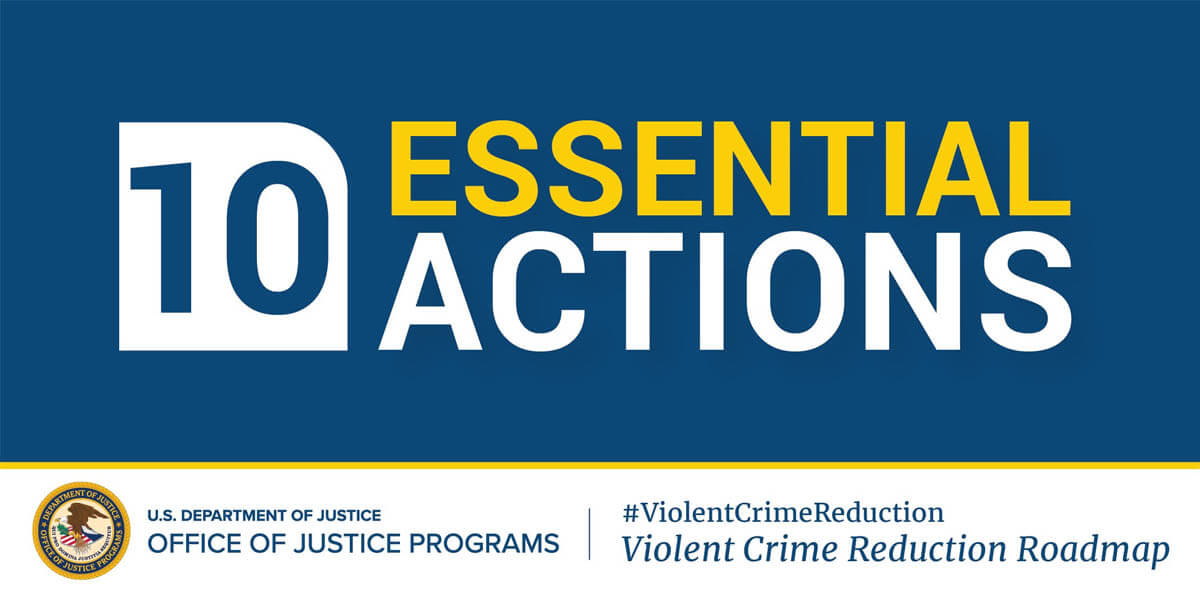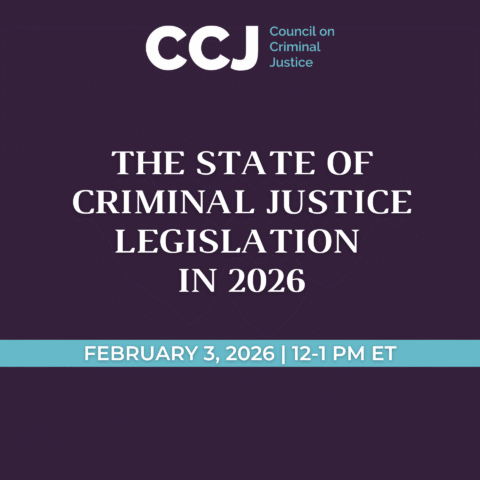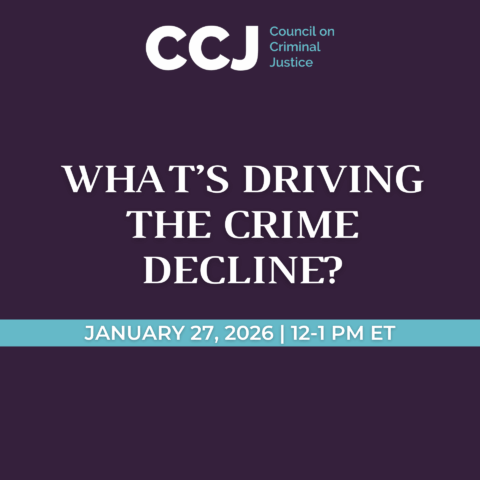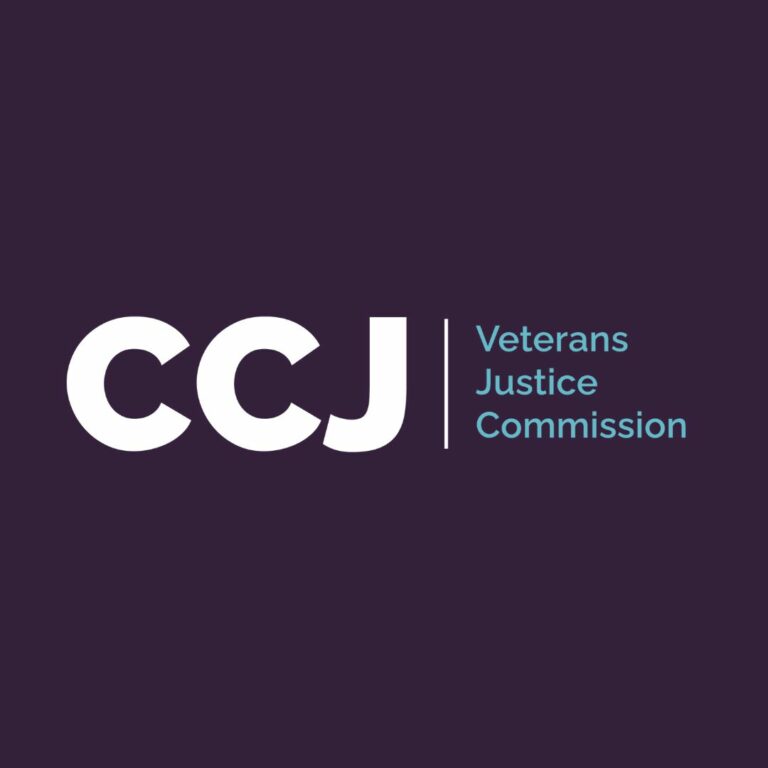
On December 11, 2023, the U.S. Department of Justice released the Violent Crime Reduction Roadmap encouraging states and local jurisdictions to follow the Ten Essential Actions framework developed by CCJ’s Violent Crime Working Group. The roadmap was announced by Attorney General Merrick Garland at the Violence Reduction Summit in Indianapolis.
CCJ’s Violent Crime Working Group was launched in July 2021 following a rapid rise in violent crime across the nation beginning early in the COVID-19 pandemic. Composed of a diverse range of leaders representing community organizations, law enforcement, the public health sector, and academia, the Working Group dedicated itself to saving lives by producing anti-violence guidance that is timely, relevant, and reliable.
Group members said the Ten Essential Actions were short-term measures most likely to make the greatest immediate impact on violence. They cautioned that the actions were not a substitute for longer-term strategies and investments that can address poverty, inequality, racism, and other underlying systemic causes of crime and violence.
After the DOJ released its roadmap, Working Group members shared their perspectives on their experience and the importance of the Ten Essential Actions.
CCJ Member Perspectives
CCJ Senior Fellow; Founding Director, University of Maryland Violence Reduction Center
“Violent Crime Working Group members took great care in crafting a clear set of actions local jurisdictions can take to stop serious violence right now. It’s an honor for our work to be recognized by the Department, but more importantly, it’s exciting to see the possibilities for scaling up this life-saving work around the country.”
Executive Director, LIVE FREE Illinois
“The Justice Department’s Violent Crime Reduction Roadmap is a step in the right direction toward addressing the root causes of violence in our communities. For years, organizers like those of us at LIVE FREE Illinois have been advocating for a long-term, comprehensive plan to end gun violence and restore justice in cities across the country. I’m thankful to have been a part of the process of developing the roadmap. I’m even happier that voices from communities disproportionately impacted by gun violence were included to ensure accountability and sustainability.”
Executive Director, National Alianza for Youth Justice
“As a formerly incarcerated member of CCJ’s Violent Crime Working group, it was incredible to sit among experts from different sectors to come up with recommendations to reduce violence in America. Some of us may have never traditionally sat at the same table to devise solutions to reduce violence because of a difference in political ideologies or our roles within systems and communities. However, in the end, our mission was clear: to think critically, using available evidence and our own experiences, to clearly outline concrete, actionable solutions to reduce violence, and to contribute to the much-needed healing our communities need. I am honored to have played a role in this work and look forward to work ahead!”
Executive Director, California Partnership for Safe Communities
“The Department of Justice’s Violence Crime Reduction Road Map provides clear, practical, and evidence-informed guidance to communities most impacted by violence. Drawing from the Council on Criminal Justice’s Violent Crime Working Group, this roadmap aligns directly with our experience working with cities across the U.S. to help them reduce gun violence at the city level and in the near term through strategic community-police partnerships.”
Professor of Criminology and Arts & Sciences Distinguished Scholar, University of Miami; Former Director, Bureau of Justice Statistics
“It has been heartening to see the Working Group’s report sought after by policymakers and political officials nationwide. The adoption of our recommendations by the Department of Justice further signifies and solidifies the importance of our work at the national level. It was an honor to be part of this Working Group, which was laser-focused on outlining what can be done to curb violent crime. My membership in this Group has been one of the most rewarding experiences of my professional career.”
Deputy Chief, Los Angeles Police Department
“Across the country, mass shootings and other violence are creating trauma in our communities, and we need a coordinated, ‘all hands on deck’ response like that outlined by CCJ’s Violent Crime Working Group. I’m honored and proud to have had a small part in this work.”
Bloomberg Professor of American Health and Distinguished Scholar, Center for Gun Violence Solutions, Johns Hopkins Bloomberg School of Public Health
“I am incredibly proud to be a member of the CCJ’s Violent Crime Working Group. Our efforts and recommendations were informed by the best available research and vast experience of members working directly to reduce violence. I am optimistic that the USDOJ’s Office of Justice Programs’ adoption of our recommendations will save many lives and reduce violence in communities across the country.”




